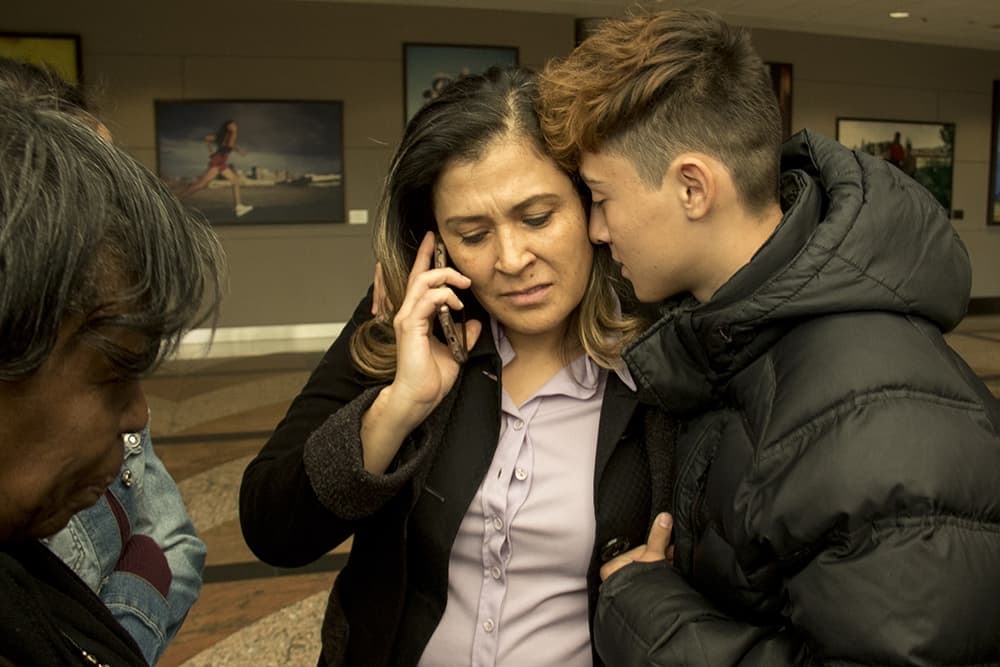
By Erica Meltzer and Kevin J. Beaty
The trip to Costa Rica was supposed to be a dream vacation, and in many ways, it was.
"We swam a lot, and we saw a lot of monkeys," Isidro Quintana recalled on a cold Colorado winter day. "We went rafting in a beautiful, beautiful place. ... It felt really, really good. My family was really united there. We were very close. I think we really needed that vacation. When you have a lot of work and you own your own business, sometime it’s just work and sleep and no fun."
But on the way back to the United States, something from Quintana's past, something he thought he'd put behind him decades ago, pinged in the computer of an immigration enforcement officer. When you're not a citizen, the past is never actually past. Now Quintana, 45, a married father and grandfather, is in detention at a private immigration prison in Aurora and faces the possibility of being deported to Mexico, a country he last saw when he was 5 and barely remembers.
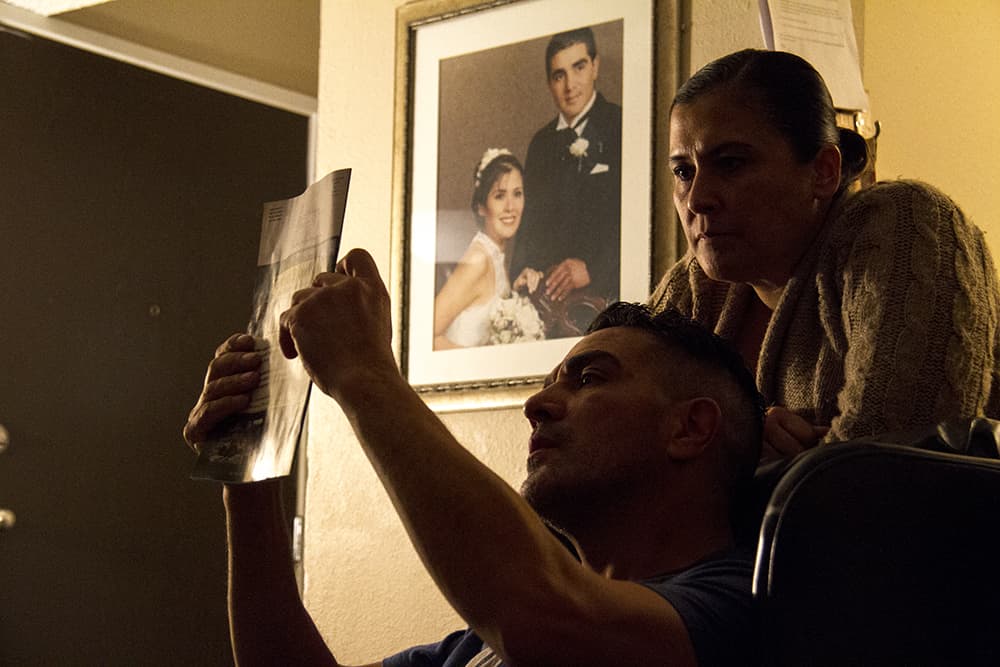
Quintana, who lives in Aurora, is a legal permanent resident of the United States, a green card holder who has repeatedly renewed his status without problems, most recently just three years ago. He owns a small interior carpentry business that supports his family and two employees. He's active in his church, part of the Seventh Day Adventist Church Reform Movement.
He is also a "criminal alien."
Quintana's case was flagged by immigration in October, before the election, but he was taken into custody after President Donald Trump took office and signed an executive order that identifies foreign nationals who have been convicted of crimes -- as well as those who have been accused but not convicted and those who are suspected of crimes -- as an enforcement priority. "Interior enforcement of our Nation's immigration laws is critically important to the national security and public safety of the United States," the executive order states. "Many aliens who illegally enter the United States and those who overstay or otherwise violate the terms of their visas present a significant threat to national security and public safety. This is particularly so for aliens who engage in criminal conduct in the United States." The executive order also rejects the idea that any class or category of immigrants should be exempt from removal.
Immigration advocates expect to see more detentions and deportations of people in Quintana's situation — people with old convictions they thought they'd put behind them, people who had not previously been a priority for deportation.
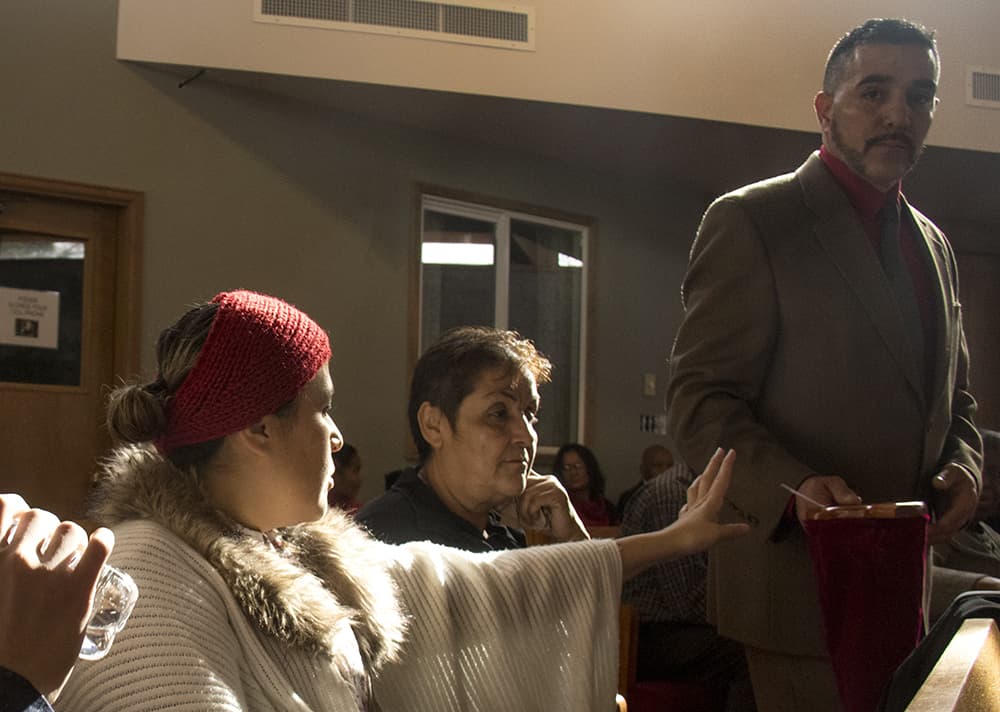
Quintana has a vague memory of being carried across the Rio Grande on a cousin's shoulders when he was 5.
That's about all he carries with him of Mexico.
Much clearer to him is the moment his family learned they would get green cards through the amnesty program signed into law by President Ronald Reagan in 1986. Quintana and his family did not enter this country legally, but they got their green cards -- legal permanent resident status -- through that program along with nearly 3 million other people.
"I remember the Border Patrol brought some cards. He told my dad, 'This is a paper so you will not ever be sent back to Mexico. Not ever. You will not have to be hiding behind shadows anymore. You are a free man to go about the United States.' He handed a whole bunch of cards, one for each of us."
The family took those cards to El Paso, Texas, where they were redeemed for green cards.
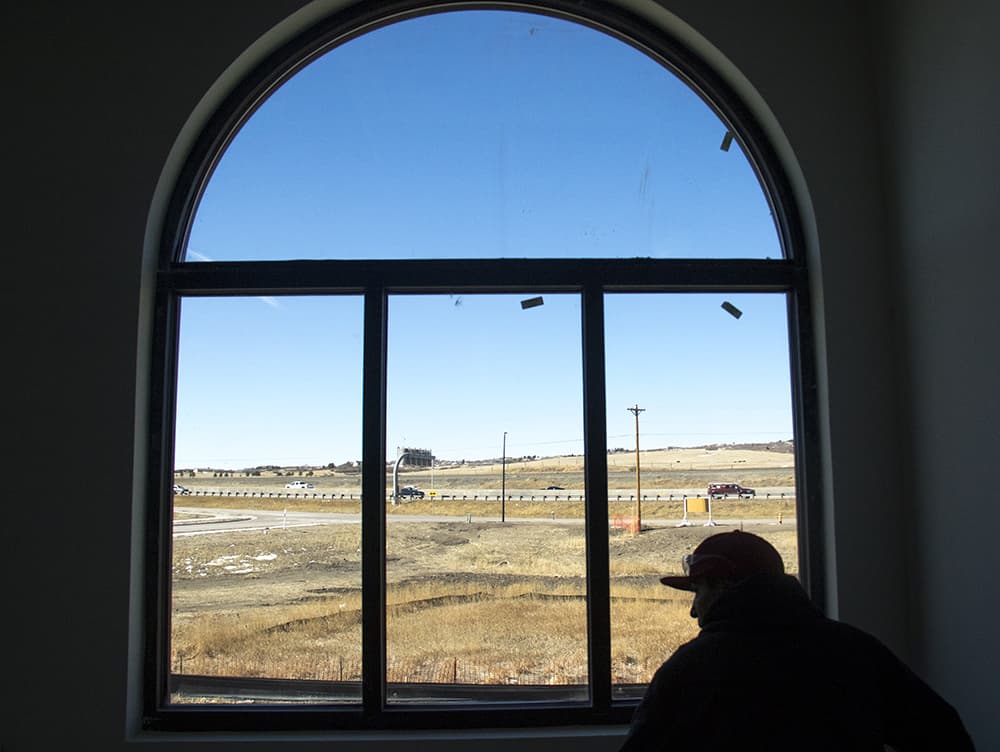
Quintana recalls that his father explained to him, "'We are so lucky. These cards mean that we are not going to be hiding from immigration anymore.' ... He was really happy when that happened."
Quintana is the middle of nine children, some of whom were born here in the U.S., and he recalls his father, who is now deceased, as one of the hardest working people he knew. He brought his children to the U.S. because he wanted a better life for them, and for many years, he made that happen. He owned a ranch in New Mexico and a gas station and had a business delivering hay to other ranchers.
But later in life, Quintana's father developed a gambling problem and a drinking problem and an other-woman problem. His parents separated, but his mother took his father back when he developed diabetes and was abandoned by his new girlfriend. Quintana's father also got involved in moving drugs, and he pulled his sons into the business.
Quintana admits he made what he calls "mistakes." In 1990, he was arrested in Denver on suspicion of second-degree assault. That charge was dismissed, and he pleaded guilty to third-degree assault, a misdemeanor. Quintana said that was a domestic violence incident with his first wife. That relationship ended in divorce in 1999. It's the only violent crime on Quintana's record.
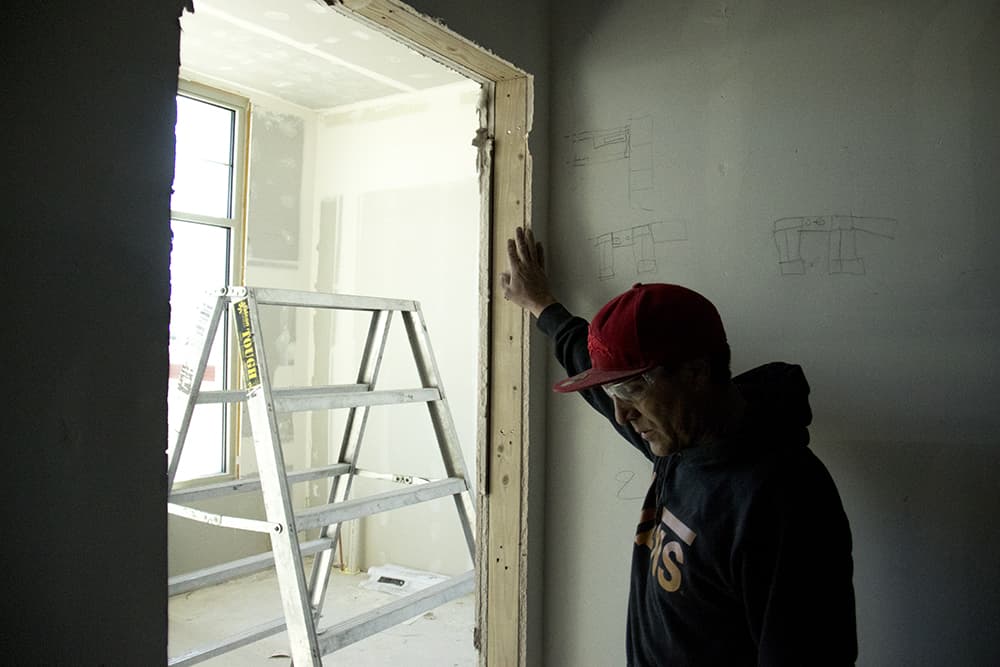
He also drove without insurance, got his license suspended, drove on a suspended license and got caught. More than once. This was, he said recently, "just dumb."
The conviction that came back to bite Quintana dates to 1996.
He was caught transporting marijuana with his father. Quintana was charged with conspiracy to commit a crime and possession of more than eight ounces of marijuana. His father took most of the blame, and the conspiracy charge was dropped. Quintana pleaded guilty to possession -- the quantity made it a felony -- and he was sentenced to time served and a year of probation, which he completed successfully, according to court records.

"Everybody here who is in their late 30s, their mid 40s, has done one dumb thing in their early 20s," said Hans Meyer, a Denver immigration attorney who is heavily involved in advocacy work. Meyer previously represented Quintana but does not represent him now. "Some of them didn't get caught, but almost everybody has done something. To take someone an entire two decades later and punish them for something they were already responsible for and put behind them is not just stupid, it’s brutal. And it’s bad policy."
Quintana has maintained uninterrupted legal status for more than 30 years and renewed his green card every 10 years, despite his record. Several of his brothers have obtained citizenship despite similar minor criminal records, and Quintana was planning to apply for citizenship this year along with a friend from his church. Meyer said it's likely that Quintana's record would come up if he applied for citizenship -- he would have to account for himself -- but it wouldn't preclude him from getting it.
Permanent legal residents of the U.S. are always at risk of deportation if they commit certain crimes.
It's a little hard to say which crimes, exactly, will cost someone their status. They include crimes of moral turpitude, crimes of violence and crimes involving controlled substances. A lot depends on the specifics of the case. Even a misdemeanor can result in removal, particularly if it involves drugs.
Republicans and Democrats alike have supported deportation for people with criminal histories, and these people were a target for deportation under the Obama administration. In 2009, 51 percent of "interior removals" -- people not caught at the border -- were for people convicted of what Department of Homeland Security deemed to be "serious crimes," according to analysis from the Migration Policy Institute. In 2016, that number was 90 percent.
This focus, combined with using formal deportation proceedings instead of voluntary returns for people caught on the border, is how Obama became "the Deporter-in-Chief." Migration Policy Institute also looked closely at the numbers behind that label: Obama removed far fewer people total than either George W. Bush or Bill Clinton, mostly because border apprehensions -- widely considered a measure of how many people are trying to cross the border -- went down significantly. But Obama used formal removal proceedings more.
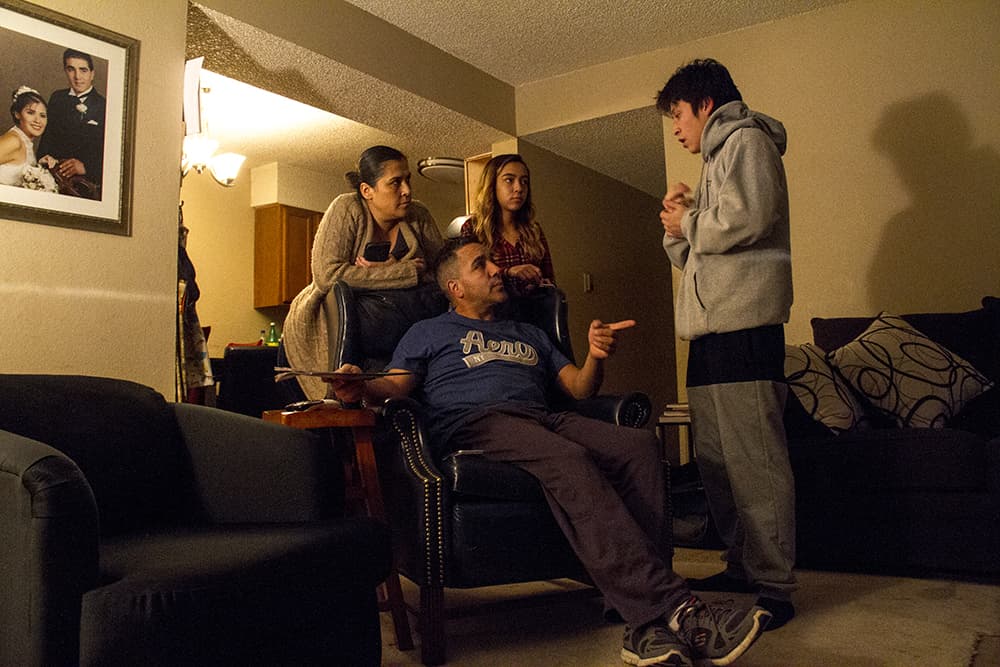
Meyer describes an evolution in the approach to enforcement. Under President George W. Bush, workplace raids were more common, but the images of large numbers of women being arrested en masse at work and the hundreds of children left at school with no one to pick them up disturbed many people. Bad optics, in Meyer's words.
At the end of the Bush admission and the beginning of the Obama administration, there was a shift to using local law enforcement as a "force multiplier." The fingerprints of anyone who was a non-citizen who was arrested were shared with the FBI and with DHS -- this practice continues today -- and anything "from traffic to murder" could cause someone to be flagged for deportation. This approach fell harder on people without legal status, but some green card holders were also affected.
While local law enforcement continues to share information with immigration, the end of "immigration detainers" -- the practice of holding non-citizens in jail until ICE could get them -- reduced deportations in Colorado.
Despite his occasional traffic violations, none of this touched Quintana until 2016.
On the way back from Costa Rica, at the airport in Florida, he watched some people ahead of him in line be led away for further questioning.
"I just thought in my mind, 'oh, those poor people.' When I got to show my passport and my green card, I thought nothing of it. I thought they would return my green card. They gave my wife (her passport) and the kids, and the officer kept mine. She went to talk to the other officer. At that point, I asked the other officers, 'Is everything okay?' And she said, 'No, can you come with me?' They took me to another room, a secure room that my family could not go into."
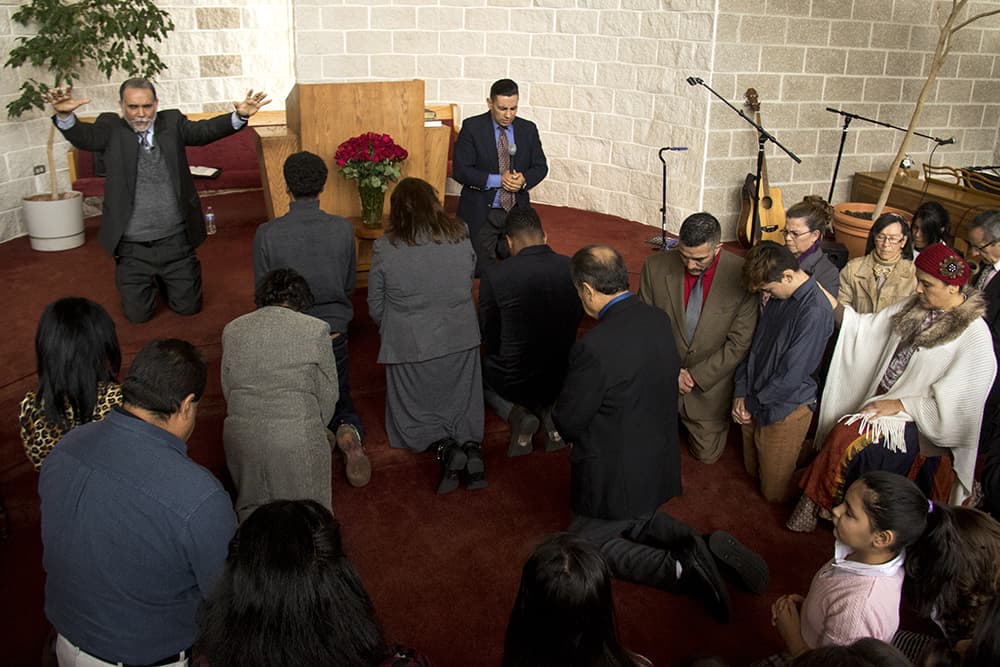
"They started asking me if I ever had a conviction," he said. "I was surprised. I probably didn’t even remember about it, that conviction from New Mexico. I told them I had a couple arrests, speeding tickets, stuff like that. They kept looking in the computer, and they asked me if I ever had been arrested in New Mexico."
"I am not a perfect person, but I have changed a lot from how I used to be," Quintana said. "I try to be a good person every day. I pray that I can be a good person."

Quintana was eventually released to go back to Colorado with a date to return for further questioning, but ICE held onto his green card. He reported to ICE offices at Denver International Airport in January and again in February and was sent home both time.
As his March appointment approached, Quintana was optimistic. He'd been praying a lot and felt like it would work out. He was expecting a secure line of work from a local developer and making plans for his business.
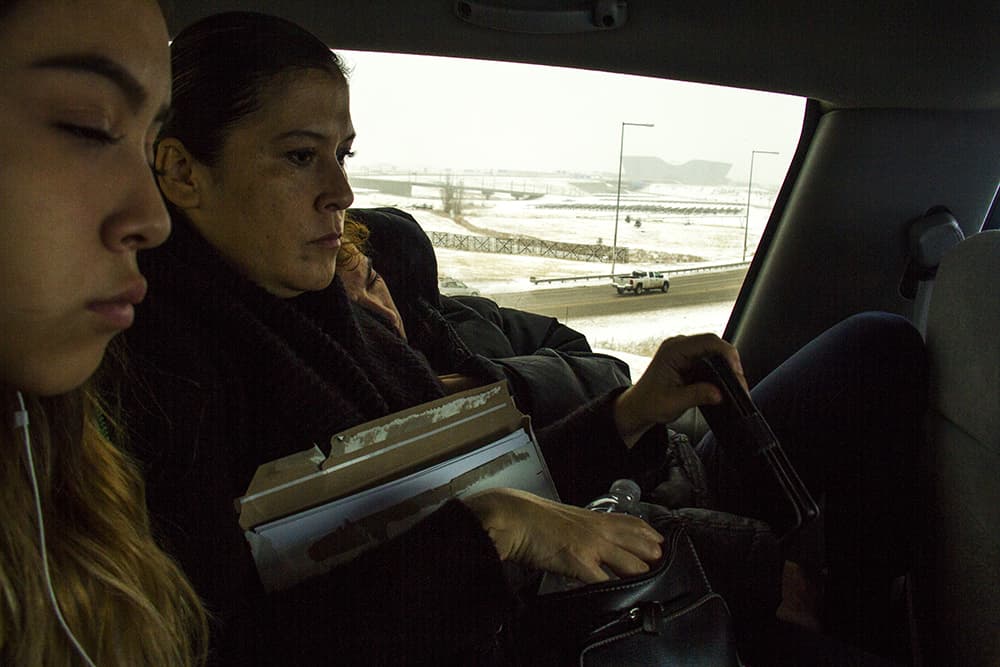
But when Quintana showed up for his appointment at DIA earlier this month, he was taken into detention.
Meyer said this would have been unusual a year ago. ICE agents used to feel like they had more discretion, he said. They could let something old slide. Or if they felt like it needed to go in front of an immigration judge, they could initiate removal proceedings without taking someone into custody, particularly if they were a low flight risk like Quintana.
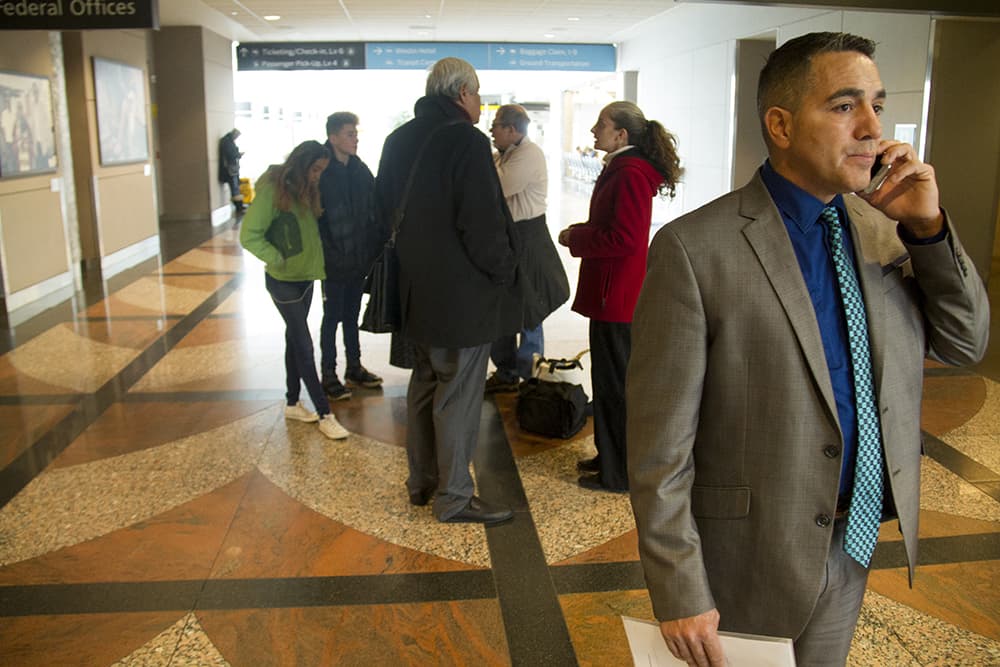
Now, instead of hiring a lawyer and fighting the case from the outside, "you’re going to battle that same battle from detention because we say so, and taxpayers are going to foot the bill," Meyer said "And the people who will benefit from that are the private prison corporations who contract with immigration."
Weldon Caldbeck, Quintana's new attorney, is trying to find a legal argument that will persuade a judge he should be eligible for bond, but it's made much more complicated by the fact that Quintana was stopped at a port of entry. The government is treating him like an "arriving alien," despite his roughly 40 years of residency in the U.S.
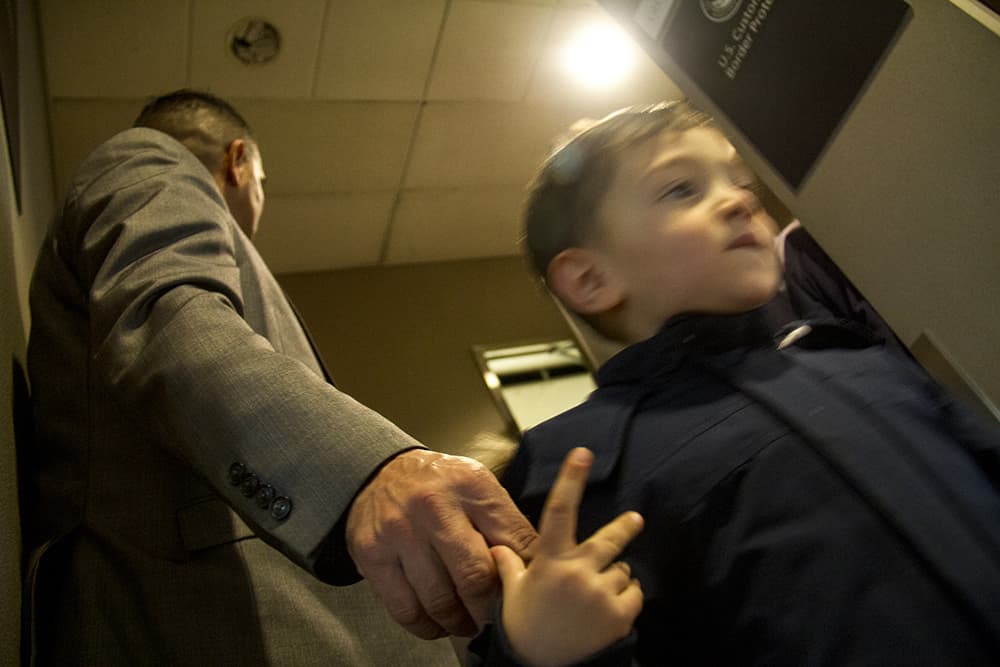
And why should Quintana stay?
Immigration is a privilege, not a right, after all. Perhaps the error was in not deporting Quintana in 1997.
"Saying any kind of criminal history should make you deportable is kind of laughable," Meyer said. "Dick Cheney has DUIs. Dick Cheney was vice president. And although I didn’t like Dick Cheney as vice president, a lot of people did. It’s an example that a person who has a criminal history can also be a contributing member of society."
When people who have integrated themselves into the community are deported, the impact doesn't fall just on that person, Meyer said.

Two of Quintana's five children are still minors: 16-year-old Ana Victoria and 14-year-old Angel. He helps support his mother financially as well. The family's livelihood hinges on Quintana's business. His wife, Erica Rodriguez, does the books and the billing. She's trying to keep things going while he is in detention, but she doesn't have the expertise to meet new clients and do estimates.
"The collateral damage of sweeping with that broad a brush isn't going to be just Isidro and his resident status," Meyer said. "It’s going to be his citizen kids and citizen wife. There are going to be the issues of lost income for his family, the possibility of going on public benefits and the cost to taxpayers of filling the void of someone who is otherwise a perfectly good father."
Rodriguez said after the family returned from Costa Rica they saw news reports in Spanish language media advising anyone with anything in their record not to leave the country. Returning to the U.S. from abroad can prompt additional scrutiny. But it's too late now.
"We should have never gone on that trip," she said. "It’s sad thinking that way. It was something meant to bring happiness to the family, and especially for our kids, that trip was for their spiritual growth. We had so many expectations for that trip, and now it’s like, oh … "
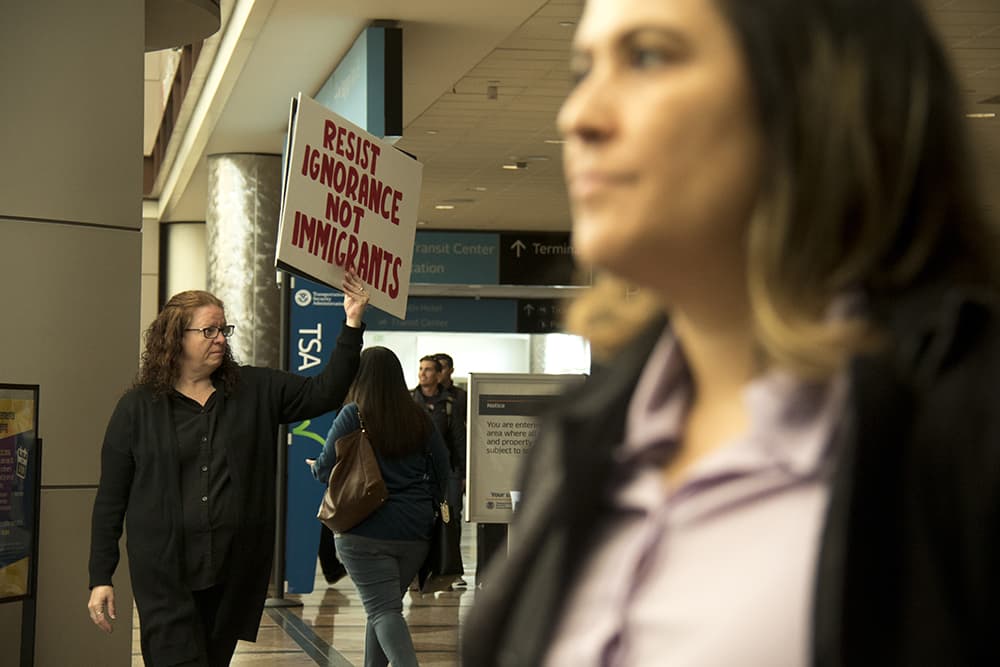
On a March morning, Rodriguez waited with Angel and Ana Victoria outside the customs area for word of what would happen to her husband. Before he had to surrender his phone, he called with the bad news. DHS would seek his removal, and he would be detained while his case was processed.
"It’s confusing but we’re still hoping that something good is going to come out," she said. "... I’ve been with him for so many years. I know where he comes from. He has made so many positive changes in his life. I hope that he gets something positive out of this, that he keeps growing in a positive light. I hope this doesn’t bring him down. That’s my hope."
Assistant Editor Erica Meltzer can be reached at 303-502-2802, [email protected] and on Twitter at @meltzere.
Visual journalist Kevin J. Beaty can be found on Twitter and Instagram at @kevinjbeaty.












